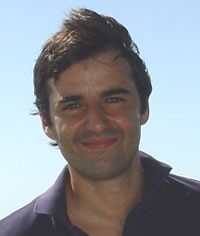Portuguese in Canada

Photo Source:
Diogo Mendes
|
Send Joshua Project a map of this people group.
|
| People Name: | Portuguese |
| Country: | Canada |
| 10/40 Window: | No |
| Population: | 276,000 |
| World Population: | 17,690,400 |
| Primary Language: | Portuguese |
| Primary Religion: | Christianity |
| Christian Adherents: | 96.00 % |
| Evangelicals: | 4.00 % |
| Scripture: | Complete Bible |
| Ministry Resources: | Yes |
| Jesus Film: | Yes |
| Audio Recordings: | Yes |
| People Cluster: | Portuguese, European |
| Affinity Bloc: | Eurasian Peoples |
| Progress Level: |
|
Introduction / History
The nation of Portugal is located on the Iberian Peninsula in southwestern Europe. Despite its relatively small size, about the size of the US state of Maine, Portugal was a world power from the 15th to early 19th century. Over 250 million people speak the Portuguese language. Most Portuguese speakers now live in Brazil. The independence of Brazil 1825 led to the decline in power and status of Portugal. Portugal's two main African colonies, Mozambique and Angola, became independent in 1975 after years of war.
Since the 1980s, Portugal's economy has been steadily improving. Portugal is a member of NATO and the European Union. Leading industries include banking, agriculture, fishing, wood pulp, mining, and tourism. Portugal is the leading cork producer in the world. Large deposits of lithium have recently been discovered in Portugal. Lithium is used in batteries.
Since the days of their empire, Portuguese people have emigrated to regions all over the world. By far, Brazil has been the leading nation to receive Portuguese people. Other nations with large Portuguese populations include the USA, South Africa, Venezuela, Argentina, and Canada.
The Portuguese were the first European explorers to see what is now Canada. For the next couple of centuries only a small number of Portuguese fishermen settled along Canada's eastern shore. It wasn't until 1953 when large numbers of Portuguese emigrated to Canada, mainly from Portugal's Azores Islands. They came for the same reason as others: Better economic opportunities and as a way to escape unhelpful governments. They were recruited to work in Canada's remote rural areas. They began ethnic Portuguese societies at this time. As time progressed, Portuguese individuals moved to the cities to work as janitors, construction workers or factory employees. By the 1960s, Portuguese families started their own businesses: Bakeries, fish shops, grocery stores, etc. Those with a high school education became driving instructors, realtors and travel agents. By the 1970s there were Portuguese people with enough education to take on new challenges: teaching, engineering, law, etc.
What Are Their Lives Like?
The Portuguese are mainly integrated into Canadian society. They often change the spelling of their names to conform to their English equivalents.
What Are Their Beliefs?
Though most remain Roman Catholic, a large number in Canada have joined other Christian denominations and organizations. They are almost as well reached for Christ as the rest of Canadian society.
What Are Their Needs?
The Portuguese must see that their nominal, traditional religion will not result in the forgiveness of their sins or a meaningful, fulfilled life. Biblical Christianity is a love relationship with God through Jesus Christ, not merely a tradition or system of laws and morals.
Prayer Points
Ask the Lord to send Spirit-filled missionaries and Bible teachers to the Portuguese in Canada.
Pray for a Christ-centered revival in the Roman Catholic Church that will result in Portuguese Christ followers discipling others.
Pray many Portuguese priests and bishops come to know a personal, love relationship with Christ and teach it during mass.
Pray the Portuguese will listen to radio and TV programs which teach the way to know Christ in a living, biblical way.